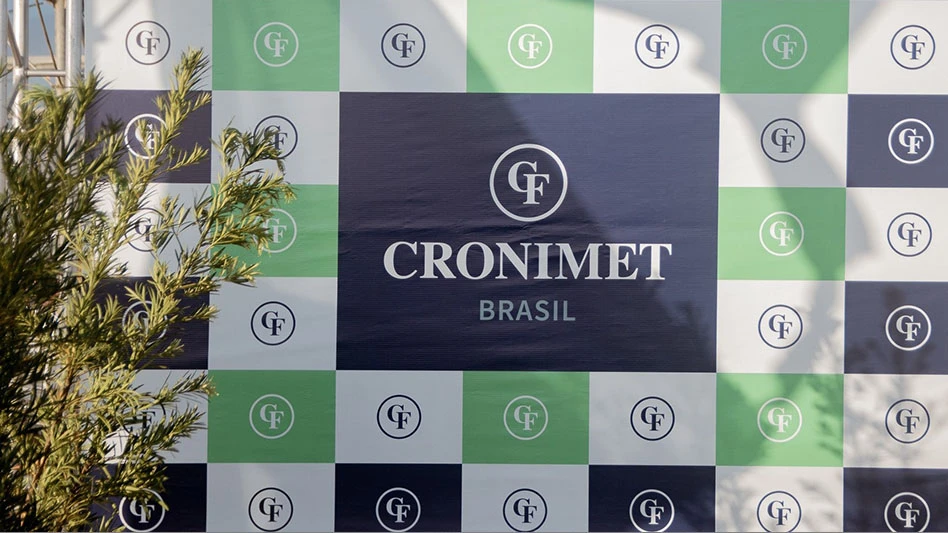
Photo courtesy of Cronimet Group
The Germany-based Cronimet Holding Group's Cronimet Brasil subsidiary—which it calls one of its largest—is celebrating its 25th anniversary this month.
The stainless steel recycling and trading firm's Cronimet Brasil segment was founded in 1999 in São Paulo and followed a companywide business model focused on stainless steel recycling.
In addition to collecting and trading, the company also began processing and blending stainless scrap in the Sao Paulo area, and in 2019 established a second processing facility in Santa Catarina, Brazil, about 400 miles south of São Paulo.
The parent company refers to its Brazilian subsidiary as “a center of excellence” for the production of recycled-content ferromolybdenum, ferrotungsten and, since August, ferrotitanium (FeTi).
“With its capabilities for producing ferrotitanium, which is the first plant in Latin America, the Cronimet Group is potentially in a position to become one of the largest suppliers of FeTi in Brazil and Europe,” Cronimet says.
The company says the FeTi produced can be delivered in standard quality to customers throughout the world at a production capacity of 1,000 metric tons of 70 percent FeTi per month.
In October, the Santa Catarina site started up alloyed cored wire production, and the wires produced there, alternatively filled with FeTi, ferrobromium, carbon or ferroniobium, are used in steel mills for the production of carbon and stainless steel.
Cored wire in melt shops can “significantly” reduce the proportion of losses of alloyed materials during the production process and provide “high precision” in the final adjustment of the steel’s composition, the company says.
“It is a very old dream that has come true with the start of production of ferrotitanium in Brazil,” says Jürgen Pilarsky, CEO and majority shareholder of the Cronimet Holding Group. “This is mainly thanks to the good cooperation between various departments and teams of the Cronimet Group. This once again demonstrates our cross-location approach, even across national borders.”
Globally, the Cronimet Holding Group has some 1,600 employees at 75 locations.
“Currently, the focus is on the procurement of titanium scrap around the world," says Leandro Campos, chief technology officer of Cronimet Group. "We have the technical and commercial capabilities to produce high-quality ferrotitanium; now we need to increase the quantities to be processed.”
Latest from Recycling Today
- BMW Group, Encory launch 'direct recycling’ of batteries
- Loom Carbon, RTI International partner to scale textile recycling technology
- Goodwill Industries of West Michigan, American Glass Mosaics partner to divert glass from landfill
- CARI forms federal advocacy partnership
- Monthly packaging papers shipments down in November
- STEEL Act aims to enhance trade enforcement to prevent dumping of steel in the US
- San Francisco schools introduce compostable lunch trays
- Aduro graduates from Shell GameChanger program





